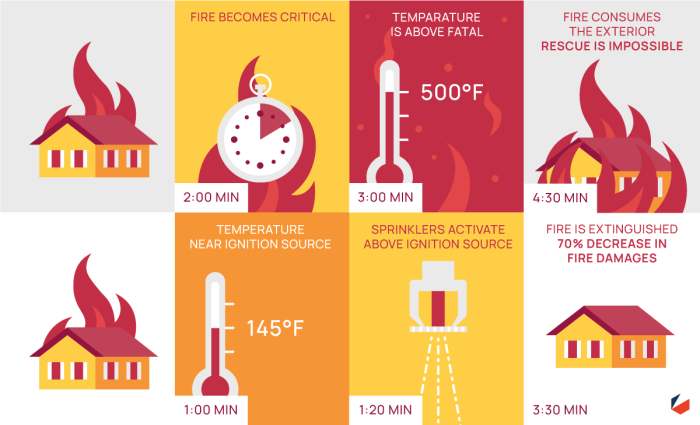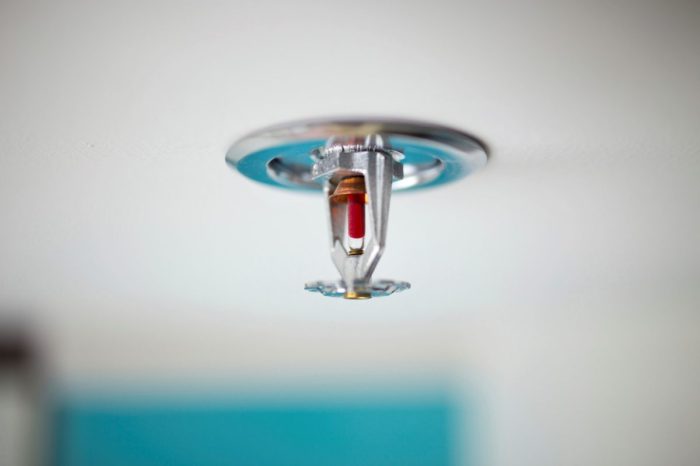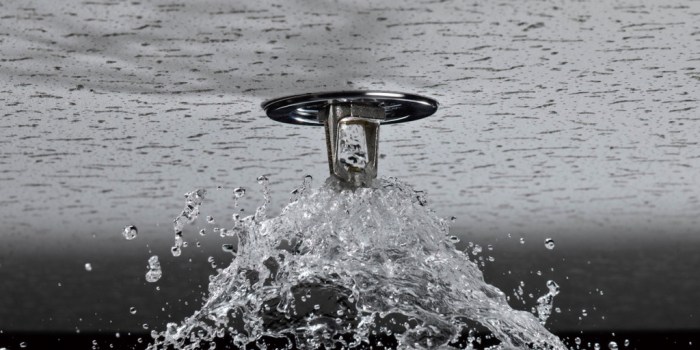Sprinklers are effective because they release an extinguishing agent, a crucial component in fire suppression systems. These systems play a vital role in protecting lives and property by extinguishing or controlling fires, making them an essential aspect of fire safety.
Sprinkler systems utilize various types of extinguishing agents, including water, foam, and dry chemicals, each with its unique properties and effectiveness against different fire types. Understanding the mechanisms, advantages, and limitations of these agents is essential for designing and implementing effective sprinkler systems.
Sprinkler Systems

Sprinkler systems are an effective fire suppression system that releases an extinguishing agent when activated by heat or smoke. They are widely used in commercial, industrial, and residential buildings to protect against fire hazards.Sprinkler systems operate by distributing water or other extinguishing agents throughout a protected area.
When a fire occurs, the heat or smoke triggers the activation of sprinklers, which release the extinguishing agent to control and extinguish the fire.
Types of Sprinkler Systems

There are several types of sprinkler systems, each designed for specific applications and fire hazards:
Wet Pipe Systems
Wet pipe systems are the most common type of sprinkler system. They are filled with water under pressure, and the sprinklers are activated when the temperature reaches a predetermined level.
Dry Pipe Systems
Dry pipe systems are used in areas where freezing temperatures may occur. They are filled with air or nitrogen under pressure, and the water is released only when the temperature rises above a predetermined level.
Pre-Action Systems
Pre-action systems are similar to dry pipe systems, but they require two triggers to activate. First, a smoke or heat detector must sense the fire, and then the sprinkler system is activated.
Deluge Systems
Deluge systems are designed to discharge a large volume of water over a specific area. They are typically used in areas where rapid fire spread is a concern, such as warehouses or aircraft hangars.
Extinguishing Agents: Sprinklers Are Effective Because They Release An Extinguishing Agent

Sprinkler systems can use various extinguishing agents, including:
Water
Water is the most common extinguishing agent used in sprinkler systems. It is effective against most types of fires, including Class A (ordinary combustibles) and Class B (flammable liquids).
Foam
Foam is a mixture of water and a foaming agent. It is effective against Class A and Class B fires, and it can also be used to suppress flammable gas fires.
Dry Chemicals
Dry chemicals are powders that are released into the air to extinguish fires. They are effective against Class A, Class B, and Class C (electrical) fires.
Activation Mechanisms

Sprinkler systems can be activated by various mechanisms, including:
Heat Detectors
Heat detectors sense the rise in temperature and activate the sprinkler system when the temperature reaches a predetermined level.
Smoke Detectors
Smoke detectors sense the presence of smoke and activate the sprinkler system when the smoke level reaches a predetermined level.
Manual Pull Stations, Sprinklers are effective because they release an extinguishing agent
Manual pull stations allow individuals to manually activate the sprinkler system in case of a fire.
Detailed FAQs
What are the different types of extinguishing agents used in sprinkler systems?
Sprinkler systems utilize water, foam, and dry chemicals as extinguishing agents.
How do sprinkler systems detect and activate?
Sprinkler systems employ heat detectors, smoke detectors, and manual pull stations to detect fires and trigger the release of extinguishing agents.
Why is regular inspection and maintenance of sprinkler systems important?
Regular inspection and maintenance ensure that sprinkler systems are in proper working order, ready to respond effectively to fires.